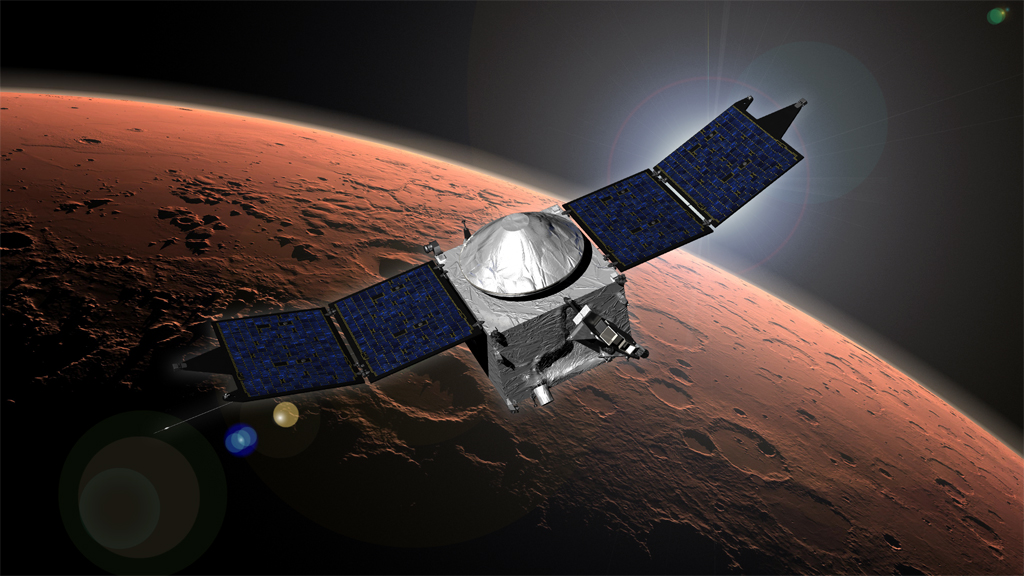The hunt for Mars water: Nasa’s Maven enters orbit
Nasa’s Maven spacecraft arrives in orbit of Mars ahead of a year long mission to find out what happened to the Red Planet’s missing water.
The robotic craft fired its brakes on Sunday night to slow its speed to 10,000 miles per hour – brining it into the clutches of the planets gravity and entering it into orbit.
Scientists believe Mars was not always the cold, dry desert that it is today. The surface of the planet is covered with what appear to be dry riverbeds and minerals that form in the presence of water have been discovered.

However, for water to pool on the surface of Mars the atmosphere of the planet would have had to have been much thicker.
Maven will study how solar winds strip away atoms and molecules in Mars’ upper atmosphere, a process that could have resulted in the planet drying out.
It is suspected that the atmosphere was stripped away over millions of years.

Above:Artist impression of Maven mission – picture credit: Goddard Space Flight Centre
The $671m Maven mission is scheduled to last one year. Flight control teams at Cape Canaveral cheered as radio signals confirmed Maven was in orbit at 2:25am (GMT).
“I don’t have any fingernails anymore, but we made it,” Colleen Hartman, NASA deputy director for science at Goddard Space Spaceflight Centre said.